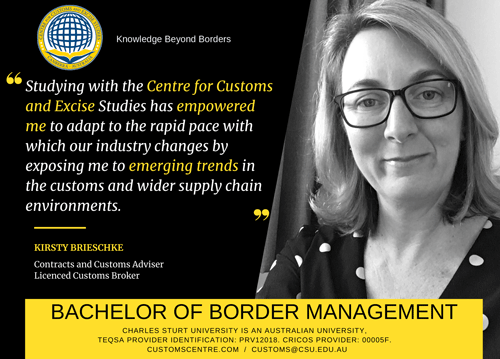Customs officials’ papers are published in the Borders in Globalization Review
17 October 2023
As part of its PICARD Programme, the WCO Secretariat has established a partnership with the Borders in Globalization (BIG) research programme of the University of Victoria, Canada, enabling some of the Customs officials who have submitted academic or policy research papers to the WCO Secretariat to be supervised by professors/lecturers of the University, and to publish their papers in the Borders in Globalization Review. The Spring & Summer 2023 edition of the Review includes two such articles, which are introduced briefly below.
Using “nudges” to enhance compliance
Veasna Yong from the Cambodian General Department of Customs and Excise wrote an article entitled Nudging Voluntary Compliance in Border Customs. “Nudging” is persuading or encouraging someone to do something in a way that is gentle, rather than forceful or direct. It implies the use of means of communication , such as forums or media campaigns. The author explains that the WCO Voluntary Compliance Framework should recommend the use of norm nudges (which emphasize a sense of morality, situating compliance as a social norm by informing taxpayers of what should be done and what others are doing), and deterrence nudges (which raise concerns over detection and sanctions by warning of non-compliance consequences). She explains, in particular, that such tools would be likely to be beneficial in encouraging compliance among individuals declaring their goods at border crossings.
Optimizing the impact of digitalization through enhanced risk analysis and controls arrangements
Mary Isabel Delgado Caceres, a lawyer specialized in international trade law, wrote a paper entitled Trade Facilitation at the Peru-Chile Land Border, analysing the impact of the digitalization of Customs clearance, and the obligation to provide Customs declarations in advance, on the efficiency of cross-border processes. She argues that although controls have been expedited, simplified and modernized, additional measures could be taken on both sides of the border. The first measure is to develop risk analysis capacities and data exchange, especially through the use of blockchain technology. The second is to modify and upgrade existing infrastructures of the border post together with other agencies, and the way controls are arranged.
Thanks to funding provided by Korea Customs, Customs officials from non-OECD countries can also be eligible to participate in the BIG Summer Institute and take one of the following week-long courses (online or in-person): Modern Border Management: Trade and Customs, or Artificial Intelligence in Border Management.
More information
https://journals.uvic.ca/index.php/bigreview/issue/view/1582
https://biglobalization.org/summer-institute

